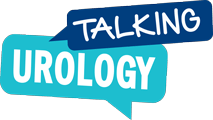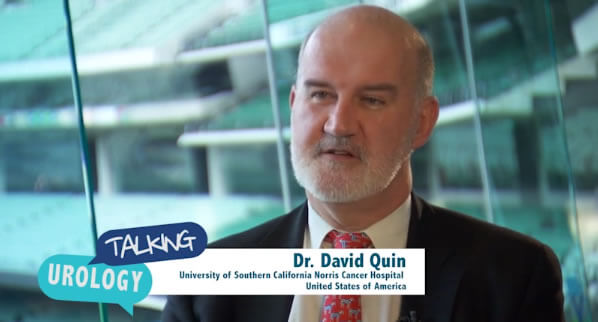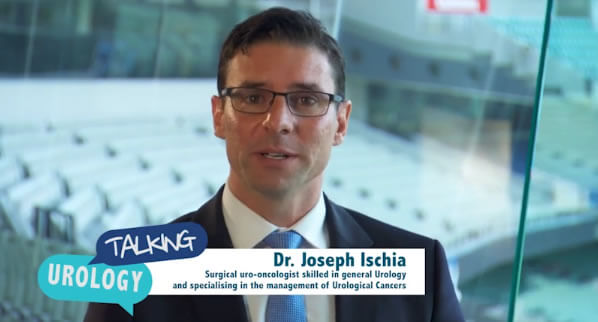In this ANZUP conference highlight, Henry Woo chats to Kelly Parsons Professor of Urology, UC San Diego. He is a clinician, a clinical triallist, and an author of wonderful and sometimes saucy medical fiction. Henry and Kelly explore the 5 key biases of urologists and surgeons, and why urologists need to get involved in clinical trial teams.
Dr J. Kellogg Parsons is Professor of Urology, Endowed Chair in Clinical Research, and Director of Genitourinary Clinical and Translational Research n the Department of Urology at the Moores UC San Diego Comprehensive Cancer Centre. His research focuses on prostate cancer, benign prostatic hyperplasia, and patient safety. He is a principle investigator for multi-centre clinical trials funded by the National Cancer Institute (NCI) and the Department of Defence. He is an author on over 130 peer-reviewed publications and serves on several high profile, national guidelines and clinical research panels in the USA.
Talking Urology podcast transcript
ANZUP 2019 Interviews – Henry Woo and Kelly Parsons
Henry Woo: Kelly, welcome to Australia. It’s fantastic to have you as a guest at the Australian and New Zealand Urogenital and Prostate Cancer Trials Group Annual Meeting for 2019. It’s especially a pleasure for me to be interviewing you because we’ve been friends for a number of years and a lot of those watching this podcast may not be aware that we are in email communication almost every couple of days through involvement with the journal for prostate cancer & prostatic diseases where we hold roles as associate editors. Now, it was interesting that when you were introduced to the podium for your talk just now, you were announced as being an endowed chair, now that raised a few eyebrows and some smiles from the Australian audience. So, what’s your take on the Australian sense of humor?
Kelly Parsons: Yes. Well, it’s interesting because this is the first place, I’ve lectured where it raises eyebrows which is interesting to me and wonderful. I absolutely love Australia. I love the Australian sense of humor. This is my third trip here. I’ve come here with my family and I feel very comfortable and welcome here, and more over it’s such a dynamic scientific community that you have – very, very highly regarded internationally and really, really breaking on to the scene in a very big way I think with some of the higher profile studies that are getting out there. But of course, I think in our particular field in urology, in surgery, your community has been very well known for quite a number of years with your work and the work of other Australian urologists.
Henry: That’s great to hear, but I do want to reassure you that we were laughing with you and not at you.
Kelly: Always yes, always…
Henry: Now I get to be a little more serious about things. You gave the audience in your talk just now some insights about surgeons. Would you like to sort of recap on those surgical traits that are well known amongst ourselves but maybe not so well known amongst our multidisciplinary colleagues.
Kelly: Yes. So, I think that the theme of the conference is making connections as you know and having been involved in multidisciplinary clinical trials for close to 14 years now and learning equally from medical oncologists, radiation oncologists, urologists, epidemiologists, statisticians all these different folks reflecting on that, reflecting on all those times that I sat in a room and looked around and realized I was the only surgeon in the room, I wanted to summarize my perspective as a urologist, as a surgeon to a multidisciplinary group to a room in which we were frankly in the minority when we were in there. My purpose was truthful, I first wanted to convey to folks who are not surgeons, who were not urologists how we think to help build that bridge of communication, so they understand where we’re coming from a bit more. And secondly, I wanted to challenge the urologists, the surgeons in the audience to think about the way they look at the world, think about their perceptions, think about those biases and challenge themselves. I am guilty of all of the biases that I described today. I wrestle with them every single day. I wrestle with them both in my clinical practice and in the clinical trial setting.
Henry: Let’s hear about just briefly what these five biases are.
Kelly: Yes. So, the first bias I summarized was “Often wrong never unsure.”
Henry: Guilty.
Kelly: Yes. absolutely and its part of our ethos as surgeons. We’re taught to be confident. We’re taught to have faith in our abilities and I think because of that sometimes, it’s difficult to change our minds about something. So, we’re get ingrained with something, we’re comfortable with something and to present data to the contrary of what we believe, I think it’s difficult for us to look at those data and say, “Yes, I should change my practice.” And I think all physicians have some capacity or some tendency to do that. I think that surgeons now are particularly…
Henry: We do it well, we do it well.
Kelly: We do it very well, we have great aptitude for it. The second one, I summarized as “Please do not disturb me I’m in the operating room.”
Henry: Guilty.
Kelly: Yes, you know from our perspective, I think as urologists or surgeons, we’re hyper-focused on what we’re doing because we have this contract with the patient this faith that we have to keep with the patient to the very best we possibly can while we’re operating, and so I think that sometimes it’s difficult for us to communicate or to not think about that while we’re doing that all day for many days a week. I think that presents logistical challenges certainly in terms of setting up meetings, multidisciplinary meetings, with our collaborators in medical oncology and radiation oncology and such, but it also a little bit of a mindset and I’ve seen it kind of creep into some of my colleagues sometimes where I think you can unintentionally project a sense of self-importance without realizing it, “Don’t bother me I’m operating right now.” The medical oncologist could easily say, “Don’t bother me, I’m in clinic right now” or “Don’t bother me, I’m on my rounds right now” and I think that we have to be wary of that particular tendency sometimes to do that.
The third bias that I discussed was “I know it works so why bother to test it?”
Henry: Also, guilty.
Kelly: Yes, as am I. So, surgeons will often times come up with a new operation or a new technique or something that they have devised in our particular field, I would say, robotic surgery certainly and then we become very enamored of it. We become absolutely convinced it’s the way to go and then we have a tendency to not move toward running, say, a randomized trial comparing that new therapy to an older one and I think that we have to challenge ourselves to do that more often.
The fourth bias I presented is that “We like to operate”.
Henry: Guilty.
Kelly: Guilty. Yes, that’s why we went into it, that’s why we were drawn to this particular field because we were drawn to this location, to this passion for operating. I spent many years, eight years learning how to do what I do as I’m sure you did and all of the other urologist surgeons that are here and you become very invested in it. I don’t mean invested in a monetary sense and certainly I think in the United States in particular, there could be that component to it, we get paid the more we operate, but it’s more than that. It’s a world view. This is how we were trained, this is how we look at things, we think about surgical cures for diseases and I think sometimes we need to take a step back and think, “Well, is surgery the best way forward?” “Are there alternative methods?” I think a classic example in our particular field is active surveillance, first for prostate cancer. I remember active surveillance when it was being presented in the mid-2000s. There were people going up to the mic were very hostile toward it at the meeting. Folks were going up to the mic saying, “How dare you? You’re going to kill our patients with this” but the data prevailed. Do nothing. First, do no harm. And I think that’s now started the trend in so many other things we do like renal masses for example.
Henry: Absolutely. I think it’s been wonderful how surgeons have actually embraced and taking charge of treatments that don’t actually involve performing surgery.
Kelly: Absolutely. The fifth and final bias that I discussed was “We take things personally.”
Henry: Yes, guilty.
Kelly: Yes. As I mentioned during the talk, how can we possibly not? We invest ourselves. We have these sacred packs with patients. Look at the measures that we use when we objectively measure trials of surgery or the kinds of things that we look at when we do surgical trials – mortality, complications, morbidity, blood loss, transfusions, these cut to the heart of our skills as surgeons and what we really believe in. And so, it’s hard for us to separate out that emotion from the actual objective measures that we’re looking at. I always think of it I’m operating on someone, I spend three of four hours operating on somebody that could alter the course of their life, completely alter the course of their life. That’s hard often, I think, sometimes to separate from the data.
Henry: Taking into account these biases, how can surgeons bring something to the clinical trials landscape?
Kelly: I think we need to be mindful certainly as surgeons of our particular biases. In terms of what we bring, I think, to a multidisciplinary clinical trial, I think first and foremost the obvious one is treatment of localized disease, surgical treatment of localized disease absolutely. That’s an important component. I often hear folks say, “Well, you provide tissue.” Well, we do and we can absolutely and that’s part of what we do, but it’s not really the most important part of what we do, certainly not in the trial setting. The other things I think that we bring to the table are very important ideas about survivorship, listening to our patients, the patients that are treated for localized disease or on active surveillance for example, listening to their thoughts, their feelings, their experiences in their cancer journey and their cancer treatments.
I think the other components that we bring to trials are we bring insights into prevention because we’re often seeing patients for the first time. We are the first point of contact and so we tend to think about primary prevention. Some of the big prevention trials in prostate cancer, for example, the primary investigators were urologists. So, you think of the selenium and vitamin E cancer prevention trial, Eric Klein at the Cleveland Clinic urologist, various esteemed urologist. He was the senior investigator on that trial. So, we bring that component to it and finally I would bring the component of course to diagnostics. I mentioned that I’ve already thumbed through the abstract book here, some great science here I’m looking forward to these presentations and seing the posters…
Henry: As the diagnosticians, we are essentially the gatekeepers of cancer
Kelly: Yes.
Henry: So, surgeons are always going to play an important part in clinical trials. Kelly I’d like to thank you again for sharing your insights with us and we had certainly learned a lot from you already and look forward to learning a lot more from you as the program progresses. Thank you very much.
Kelly: Thank you for having me, it’s just been absolutely delightful.










